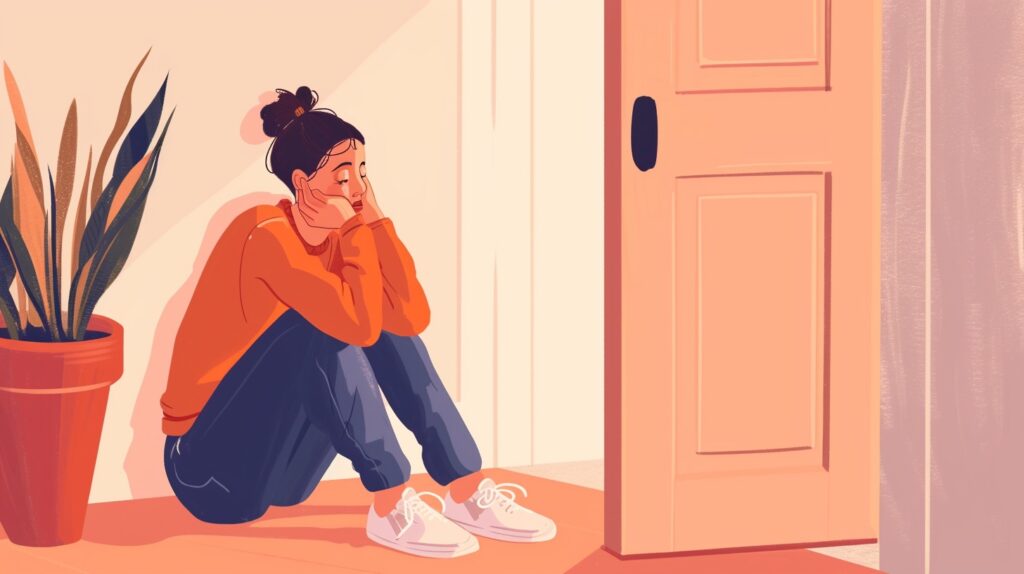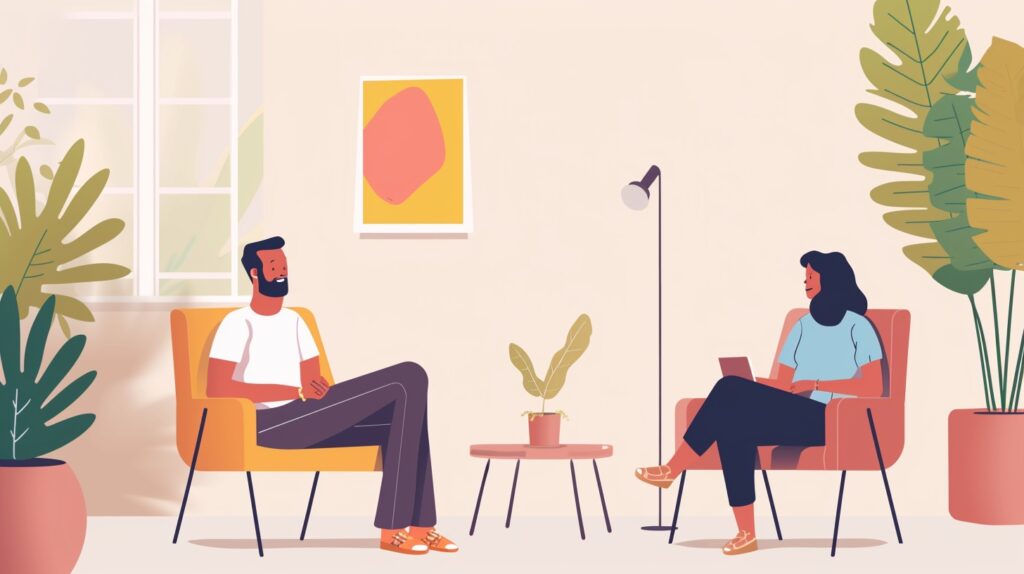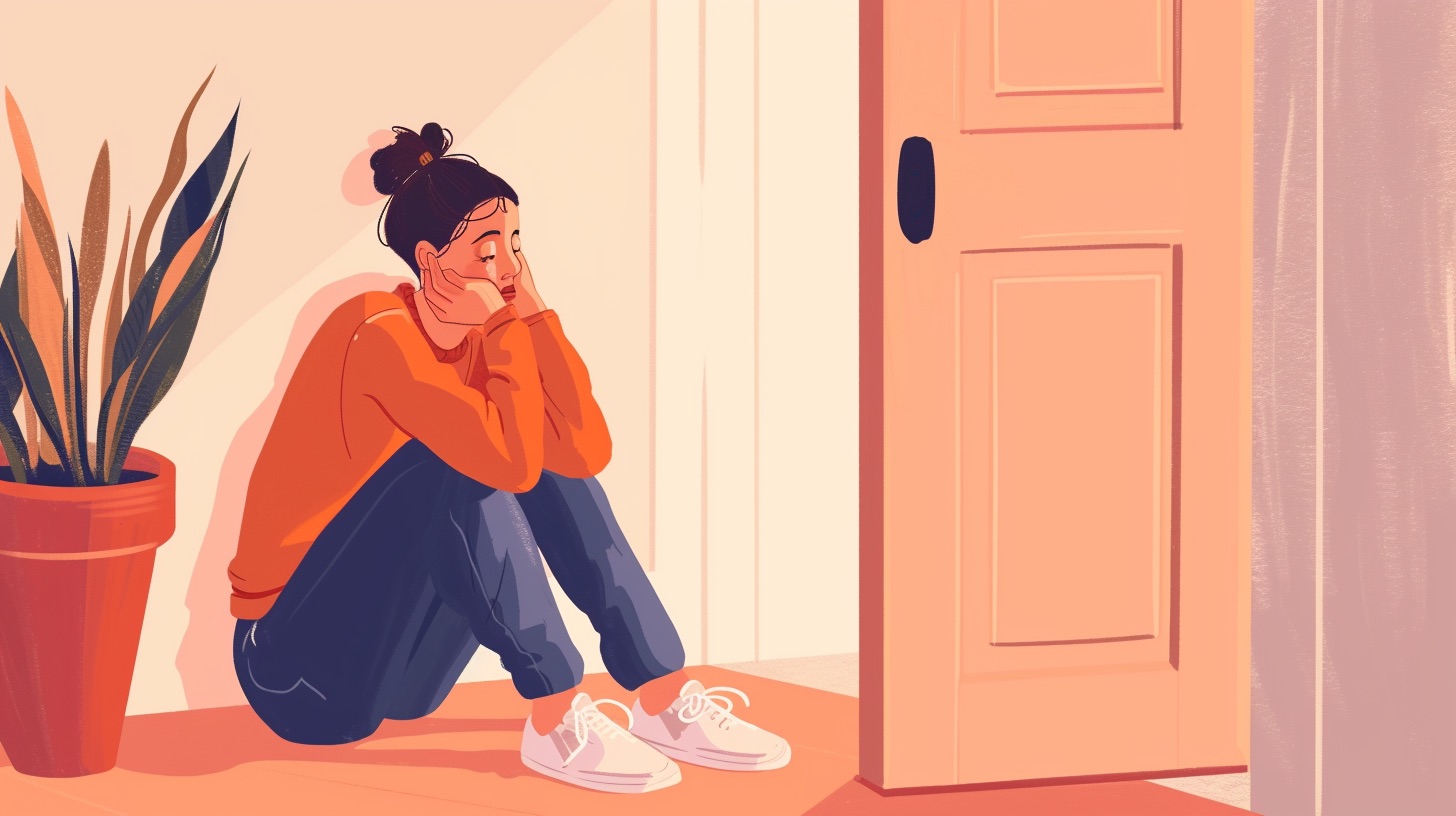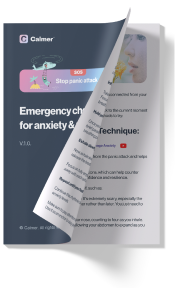In this article, I’ll explain what separation anxiety is in relationships, techniques for managing relationship anxiety, and my own personal experiences.
Relationship separation anxiety shows up as worry or unease when thinking about or going through time apart from a partner or someone close. This feeling isn’t just for kids; adults can have it too, even if they are generally mentally and emotionally stable. It usually appears when there are changes in life, like when a partner goes on a business journey, the way we relate to each other changes, or in different situations where being physically close is affected.

In my experience from working in clinics and reading studies, I have noticed that separation anxiety can affect how a relationship is built and the way it functions. It is an intricate feeling that combines someone’s emotional connections with their own actions and the actions of a group. How people cope and adjust when they have separation anxiety shows a lot about how strong and flexible relationships can be when there is physical or emotional space between individuals.
Approaches for treatment aim to lessen the symptoms of anxiety and think about how relationships affect it. In therapy, we work on finding out where the anxiety comes from, strengthening ways to calm oneself down, and creating networks for support. The development of knowledge about separation anxiety in relationships has led to the use of more detailed and personalized approaches in therapy, recognizing that each person’s unique experiences require different tactics.
Key Takeaways
- Separation anxiety can impact children and adults throughout major life changes.
- Coping mechanisms and adaptations reveal relationship adaptability.
- Individualized treatment might include many methods.
Understanding Separation Anxiety
In this study about separation anxiety, I concentrate on the definition of the disorder, actions that show someone has it, reasons why it starts, how it affects relationships with other people, and ways it appears differently in adults.
Definition and Overview
Separation anxiety is when someone worries too much about being away from home or people they have a deep connection with. It usually comes from being scared that something bad might happen to them or their close ones while separated.
Symptoms and Signs
The person could have ongoing upsets that make it hard to sleep and focus. They might also show signs of being unable to stay calm and getting easily annoyed when they think about or are in the situation of having to be apart from someone. The display of these symptoms often disrupts normal daily activities.
Causes and Development
Separation anxiety often comes from past experiences where there was a loss or something bad happening, like an accident or when someone dear passed away. Things that happened in childhood, even if just seen and not experienced firsthand, might lead to problems with separation anxiety later on. This anxiety can become stronger when there are stressful changes in life, for example, like what happens during a worldwide disease outbreak.
Attachment and Relationships
The strong feeling of connection between two people, known as attachment, has a big impact on how they feel when separated. People who have always felt securely attached in relationships often do not get as anxious during separation, but those with less secure bonds might feel more worried and uneasy. This can also happen in relationships where there is dependency, which usually leads to feeling more upset when separated.

Separation Anxiety in Adults
While traditionally linked to children, separation anxiety in adults can present itself as Adult Separation Anxiety Disorder (ASAD). Loneliness and dependence on a partner, for instance, can markedly increase vulnerability to ASAD. Recognition and appropriate action become critical for adults facing this condition.
Separation anxiety disorder is one of the various anxiety disorders. I must point out that it is distinct from conditions such as dependent personality disorder or other anxiety disorders. Accurate diagnosis requires attention to detail regarding the specific nuances of each disorder to ensure proper management and care.
Experiencing Separation Anxiety
In exploring separation anxiety within the context of relationships, the focus narrows to specific emotional and physical responses, behavioral patterns, implications in romantic partnerships, the influence on daily activities, and possible concurrent complications.
Emotional and Physical Symptoms
I feel a deep fear about being apart from my partner. This fear shows up as feelings that range from just feeling uncomfortable to very strong worry. When I think about or face being apart, my body responds in a similar way; sometimes my heart beats faster or I have continuous pain in my stomach.
Behavioral Manifestations
My actions often betray the internal turmoil that separation anxiety evokes. Examples include recurrent text messages or calls to my partner when we’re apart, or a reluctance to engage in activities that involve physical absence. This need for constant reassurance reflects the anxiety’s hold on my behavior.
In Romantic Relationships
When immersed in a romantic relationship, separation anxiety intensifies, given the depth of attachment. The distress felt when away from my boyfriend transcends mere discomfort, at times surfacing as jealousy or a fear of abandonment that can cloud the relationship.
Impact on Daily Life
This type of worry breaks into my normal activities, and it’s hard to concentrate on my job or have a good time with friends if I’m not with my partner. Just thinking about going somewhere without them or the possibility that they might get hurt when we’re separated makes me feel very anxious.
Complications and Co-occurring Conditions
Serious forms of anxiety from separating in a relationship might not just be by themselves; they usually appear together with different types of anxieties. A lot of signs, like sudden fear episodes or bad dreams during sleep, show that it is more than simple worries about relationships and could point to having a wider problem with anxiety.
Management and Treatment

When addressing separation anxiety within relationships, effective management and treatment rely on a combination of professional intervention, personal efforts to enhance self-regulation, clear communication between partners, and a focus on fostering self-reliance and assurance.
Professional Support
I advise seeking support from a qualified therapist, as they offer expert guidance through established treatments like Cognitive Behavioral Therapy (CBT). In essence, CBT helps patients identify and change thought patterns that lead to anxiety, enhancing their ability to deal with separation. It’s often recommended to delve into therapies that focus on relationships and separation anxiety, as they can provide tailor-made coping strategies.
Self-Help Strategies
Organizing a routine that incorporates mindfulness and meditation proves beneficial, as both practices aim to calm the mind and reduce worry. I can attest to the efficacy of journaling; it allows for monitoring progress over time, serving as a tangible method to reflect upon personal growth. Engaging regularly in self-care activities nurtures a sense of safety within oneself.
Communication and Reassurance
I’ve observed the importance of maintaining open communication with partners, which can ease trust issues and reinforce emotional safety. Partners should convey their needs and provide reassurance to mitigate the effects of separation anxiety, emphasizing the stability of their relationship.
Building Independence and Confidence
Fostering autonomy and personal growth involves establishing activities separate from the relationship that encourage confidence. By doing so, individuals begin to appreciate their self-worth outside the context of their romantic attachments, which is crucial for healthy personal development and the management of separation anxiety.
Maintaining Healthy Relationships
In my experience, the key to preserving any relationship lies in a constant commitment to mutual respect and communication, ensuring growth and the ability to set clear boundaries, all while nurturing a sense of security within that connection.
Understanding and Growth
I’ve observed that self-awareness serves as the foundation for understanding in a relationship. By recognizing personal emotional patterns, I can contribute to a relationship’s longevity and resilience. Knowledge of attachment styles—be they secure or otherwise—allows me to approach interactions with clarity, not chaos. For example, if I know I lean towards an anxious attachment style, craving comfort and reassurance, I can work on balancing this need with my partner’s autonomy, preventing emotional turmoil.
Setting Boundaries
I set boundaries to maintain control and health in my relationships. Clearly communicating my needs and limits to my partner fosters mutual respect and trust. This process sometimes necessitates tough conversations, especially if trust issues exist. However, defining what I tolerate and what I don’t empowers me, and signals to my partner the ways they can offer their support without breeding dependence.
Fostering Secure Attachments
A secure attachment, as I understand it, is characterized not by control but rather by a shared connection and comfort. With my attachment figure, be it a friend or romantic partner, I aim to provide and receive consistent reassurance without tipping into reliance. When both parties in the relationship operate with this security, support flows naturally. By focusing on building a secure base, I’ve noticed that both I and my partner feel more equipped to handle life’s stressors, known and unknown, together.
Navigating Life Transitions
Life transitions demand adaptability and the capacity to manage separation anxiety. Engaging with these shifts head-on can preserve well-being and foster resilience.
Dealing with Life Changes
When life brings changes like finishing a relationship, relocating to another city, or changing jobs, I think it’s very important to create a daily routine that gives me a feeling of regularity. Consistent exercise and sleeping habits are an essential part of this routine. From living through big world events like the global health crisis (the COVID-19 pandemic) that made everyone change their normal day-to-day, I understand how important it is to keep in touch with people using different ways of talking or messaging. Doing this helps lessen the lonely feeling that usually comes when there are big changes in life.
Overcoming Past Trauma
Facing trauma, whether it’s from when you were young or something bad that happened not long ago, is a complex thing to do. Thinking about this carefully is very important. I think getting help from an expert, such as in therapy sessions, can be really useful for a well-organized way of understanding what happened before. Writing in a journal is another way for me to express and understand the deep feelings related to my challenging history. It is particularly important when I am trying to create a story that focuses more on personal development than traumatic experiences. It also shows how much humans can recover from very deep difficulties.
Resource and Support Networks
In handling the impact of separation anxiety within relationships, I recognize the valuable role that resource and support networks play. These form the bedrock of reassurance and assistance during times when individuals seek comfort and guidance. They range from informal community support to professional therapeutic interventions.
Community and Social Groups
Witnessing firsthand, I find that community and social groups act as pivotal resources. These groups provide both a comforting space and facilitate the creation of meaningful friendships. Within these settings, individuals often discover peers who have undergone similar experiences, which serves to normalize their feelings and promote mutual support. To illustrate:
- Support Group Meetings: Participation offers shared experiences.
- Community Events: Engage in activities that foster connections beyond immediate concerns.
This engagement within groups sometimes brings to light untapped reservoirs of emotional support and practical advice.
Professional Help and Counseling
I view therapy as more than a solution; it is like a path that helps people understand their feelings. Counselors provide order when things are chaotic, leading someone through steps to bring back stability and control in life.
Here’s a snapshot of what this may involve:
- Couples Therapy, a space where both parties work through relationship dynamics with a facilitator.
- One-on-One Therapy, a targeted session that addresses personal issues with confidentiality.

These kinds of helping relationships usually have many different methods. This can be something like cognitive-behavioral therapy, which is when you find and question bad thinking to try and change behaviors that are not wanted. When people work with experts, it can become a very important part of dealing with the hard parts of feeling anxious about being apart.
Future Directions and Research
In the realm of separation anxiety within relationships, expanding on the current body of knowledge is crucial. My main concern is how cutting-edge therapeutic techniques and creative coping mechanisms can benefit those who are suffering from this condition.
Advancements in Therapy
Recent research studies have provided a base for therapists to improve how they tackle separation anxiety. The possibility of Cognitive Behavioral Therapy (CBT) developing further captures my interest. This method changes bad thinking habits to help control feelings better. Scientists are studying its details more closely so they can adjust the treatment to deal with specific aspects of separation anxiety. Innovation here includes adding mindfulness and meditation to the CBT method, possibly making it better for people. Mindfulness lets a person pay attention now and can help make usual therapy stronger by showing good results in lowering worry feelings.
Developing New Coping Mechanisms
In consideration of coping strategies, I’m aware that there’s a drive to move beyond conventional approaches. It’s hypothesized that by integrating technology, such as mobile applications guiding meditation, individuals with separation anxiety might find relief more readily in their daily lives. The use of these digital tools can provide immediate assistance and reinforcement of techniques learned in therapy sessions. The prospect for future developments hinges on creating accessible, evidence-based options for coping that individuals can utilize independently or alongside professional mental health support. These strategies have the potential for a broad impact, aiding individuals globally who face the challenges of separation anxiety.
Concluding Remarks
In studying how fear of being separated affects close relationships, we carefully looked at its effect on a person’s peace and ability to improve themselves. Worry about separation does not just stop someone from feeling calm but can also slow down their progress in life. Exploring both scholarly studies and my own observations shows that having a solid network of support is a key way to fight against the negative impacts of feeling anxious when one is separated from others.
Thinking about my path, I see that building strong but adaptable connections is important for creating a base for emotional strength. This, I realized, is very necessary for maintaining wellness over time. People can manage their fear of being alone better when they are with reliable friends. Having this kind of support usually helps to create a good setting for someone to grow and be happy on their own.
Recognizing that sometimes the feeling of nervousness when away from someone can continue into being an adult, we see that lasting signs of this can interfere with normal give-and-take in a partnership. Good relationships are seen as ones where both people share understanding and comfort, but these could be damaged if blocked by past feelings of needing others too much and being scared to lose them.
To sum up, it is the strong network of relationships tied together with mutual respect that supports us when we face the storm of stress from being apart. My own experiences show how important it is to always work on building our support networks—this shows a life filled with more confidence and plenty of chances for improving oneself.
Frequently Asked Questions
During my research on the subject, I found many common questions about separation anxiety in couples, like how to recognize and handle it, what causes it, and how partners can help each other.
What are the common indicators of experiencing separation anxiety in a partnership?
I notice that common signs are continuous concern about the possibility of losing a partner, feeling upset when separated, and not wanting to spend time without them. Knowing these signals aids in identifying if there is separation anxiety in a relationship.
How can one effectively manage and treat separation anxiety while in a relationship?
I suggest trying to be more independent in the relationship. This could mean focusing on your own hobbies or spending time with friends. It might also be very important to get help from a therapist, and this guide explains why it is significant for family dynamics.
What psychological factors contribute to the development of separation anxiety among partners?
Important mental elements are how a person attaches to others and if they have gone through loss before. For example, people who do not form strong bonds easily might be more vulnerable because they may have a greater fear of being left alone by someone.
Do you know ways to cope with anxiety when away from a loved one?
Certainly, implementing consistent communication habits and building a network of personal support can work well. Such steps help to reduce concerns about feeling distant from a close partner.
Do people often feel separation anxiety in their love relationships, and what are the signs to notice it?
It is quite usual to see this condition, and many times it shows itself in a constant worry about the possibility of being separated or too much thinking about whether one’s partner is safe and healthy. Understanding more about this situation could help us know how often it happens and what effects it has.
What advice is available for individuals living with partners who suffer from separation anxiety?
I recommend demonstrating empathy, not ignoring their emotions, and suggesting expert assistance if the stress interferes with daily activities. Working together with a therapist might offer methods customized for the couple’s unique circumstances.




